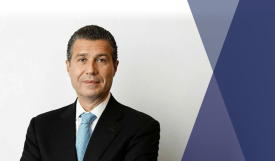Venezuelan Talks Suspended But Government Will Try to Restart Them: President Acccuses US Amid Protests Over Failed Socialist Policies
Around 3,000 have been arrested and 44 are dead on both sides but the struggle between the opposition and the chavista government continues. Talks had commenced to prevent further unrest and casualties; however, they have not yielded results and both sides remain frustrated.
Since February, students and opposition party members joined forces and began protesting what they believed the government's failed socialist policies, which have led to food and medicine shortages, high crime rates, and few jobs. The government of President Nicolas Maduro blames the U.S. government for interfering and calls dissenting members of government traitors and fascists. Talks begun earlier this month to reconcile their difference, end the protests, free arrested protestors, and reach a compromise but they have stalled.
On May 13, the moderate wing of the Democratic Unity (MUD) decided to call off the talks because very little progress has been made and none of the protestors arrested have been freed. According to The Economist, coordinator for MUD Ramon Guillermo Aveledo announced the suspension of talks. "We discuss the issues, we reach agreements, and there's no movement," he said.
Overseen by the Vatican and member states of the Union of South American States (Unasur), the talks have not moved forward with both sides' distrust continually growing. Some on the government side are also suspicious of the talks and do not hope for their success. Interior Minister Gen. Miguel Rodriguez Torres claims the talks are just a front as the opposition prepares to overthrow the government.
"One group plays the violent role, the other the democratic role," he said this week, according to The Economist. "Whoever starts winning the game, the other joins in."
Yet, the opposition's ranks are also split. The Economist reports that the more radical faction, who has condemned the talks and continues marching on the streets, calls the moderates "collaborators" and "traitors." However, mediators are keen to restart talks.
On Sunday, the foreign ministers from Brazil, Ecuador and Colombia will meet with opposition leaders in an attempt to resume negotiations, according to USA Today. If the meeting goes well, then talks will continue, David Smilde, a senior fellow at the Washington Office on South America, told USA Today.
"I am sure that Maduro and the government would like for talks to continue without having to make any concessions,'' he says. "MUD's conversations with the ministers are aimed at pressuring the government to give some ground."
Yet, the recalcitrant nature of both sides -- one refuses to concede even the creation of a truth commission led by both sides and the other refusing to stop protests -- makes for bleak results.
Through the protests and negotiations, Venezuela's economy continues to falter. More and more foreign businesses have packed up and left, including the Italian airline Alitalia, which announced that it will stop flights to the country on June 2, reports USA Today.
Subscribe to Latin Post!
Sign up for our free newsletter for the Latest coverage!
© 2026 Latin Post. All rights reserved. Do not reproduce without permission.















